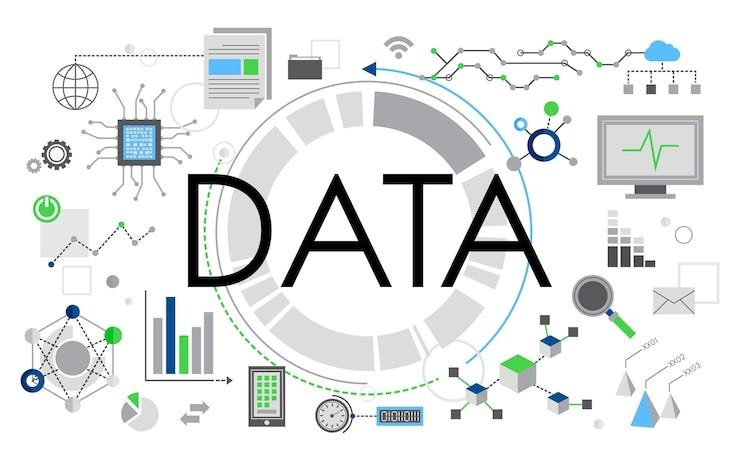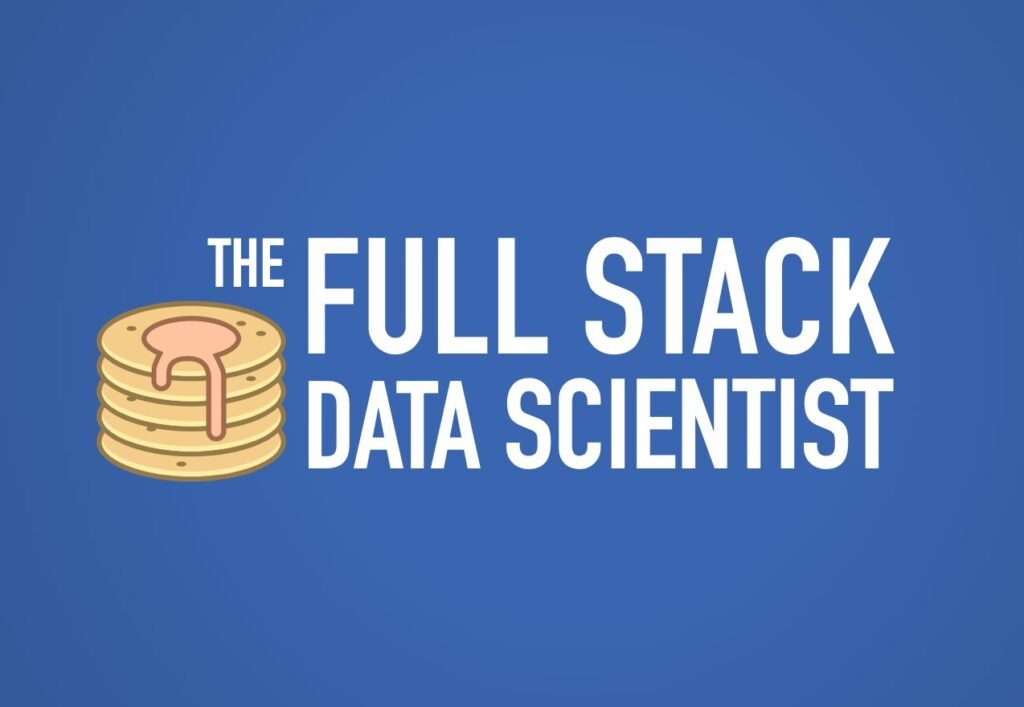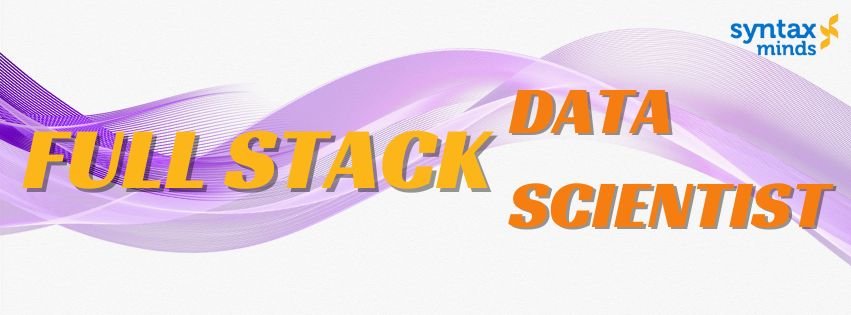Table of Contents
ToggleFULL STACK DATA SCIENTIST
A full stack data scientist is a versatile professional who can handle the entire data science process, from data collection to model deployment and maintenance. This role combines skills from various disciplines, enabling the individual to work across the entire data pipeline. Here’s a deeper explanation of what a full stack data scientist does and the skills they possess:
Key Responsibilities
Data Collection:
Sources: Gathers data from multiple sources, such as databases, APIs, and web scraping.
Tools: Uses SQL for querying relational databases and may utilize NoSQL databases for unstructured data.
Data Cleaning and Preprocessing:
Wrangling: Cleans and transforms raw data into a usable format, handling missing values and outliers.
Feature Engineering: Creates new features that enhance the predictive power of machine learning models.
Exploratory Data Analysis (EDA):
Visualization: Uses tools like Matplotlib, Seaborn, or Tableau to visualize data and identify patterns.
Insights: Derives actionable insights through statistical analysis to guide business decisions.
Machine Learning:
Model Building: Develops models using algorithms from libraries like Scikit-learn, TensorFlow, or PyTorch.
Types of Models: Works with both supervised (e.g., regression, classification) and unsupervised (e.g., clustering) learning techniques.
Model Evaluation:
Testing: Evaluates model performance using metrics like accuracy, precision, recall, and F1-score.
Tuning: Optimizes model parameters through techniques such as cross-validation and grid search.

- Deployment:
Implementation: Deploys models into production environments using frameworks like Flask or FastAPI.
Cloud Services: Utilizes platforms like AWS, Google Cloud, or Azure for hosting and scalability.
- Monitoring and Maintenance:
Performance Tracking: Monitors models post-deployment to ensure they remain accurate over time.
Retraining: Updates models as new data becomes available or when performance degrades.
- Communication:
Stakeholder Engagement: Communicates findings and insights effectively to non-technical stakeholders.
Documentation: Maintains clear documentation of processes and results for future reference.

Essential Skills
Technical Skills:
Programming Languages: Proficient in Python and R for data manipulation, analysis, and modeling; SQL for database management.
Data Manipulation Libraries: Expertise in libraries such as Pandas and NumPy for data handling.
Machine Learning Frameworks: Familiar with Scikit-learn, TensorFlow, Keras, and PyTorch for developing machine learning models.
Big Data Technologies: Understanding of Apache Spark, Hadoop, and other tools for processing large datasets.
Data Visualization:
Tools and Libraries: Skilled in using Tableau, Power BI, and visualization libraries like Plotly and Matplotlib for presenting data insights effectively.
DevOps and Deployment:
Version Control: Proficient with Git and GitHub for managing code versions and collaboration.
Containerization and Cloud Services: Experience with Docker, Kubernetes, and cloud platforms (AWS, Azure, GCP) for scalable deployments.
Statistical Knowledge:
Statistical Methods: Strong grasp of statistical techniques to guide data analysis and model evaluation.

Impact in Organizations
Full stack data scientists are instrumental in driving data-driven decision-making within organizations. Their ability to understand both the technical and business aspects of data allows them to:
Enhance Efficiency: Streamline processes by automating data collection, cleaning, and modeling, leading to faster insights.
Drive Innovation: Develop predictive models that can uncover new business opportunities and inform strategic initiatives.
Support Cross-Functional Teams: Collaborate with data engineers, product managers, and business analysts to create integrated data solutions.
Soft Skills
Problem-Solving: Able to tackle complex data challenges creatively.
Adaptability: Stays updated with the latest trends and technologies in data science.
Collaboration: Works well in team settings, often collaborating with data engineers, analysts, and business stakeholders.

Career Path
Full stack data scientists typically begin in roles like data analyst or junior data scientist. With experience, they can advance to senior data scientist positions, data science managers, or specialized roles focusing on specific areas like machine learning or data engineering.
Conclusion
In summary, a full stack data scientist plays a crucial role in transforming raw data into valuable insights that drive decision-making in organizations. Their ability to navigate the entire data pipeline makes them indispensable in today’s data-driven landscape.

